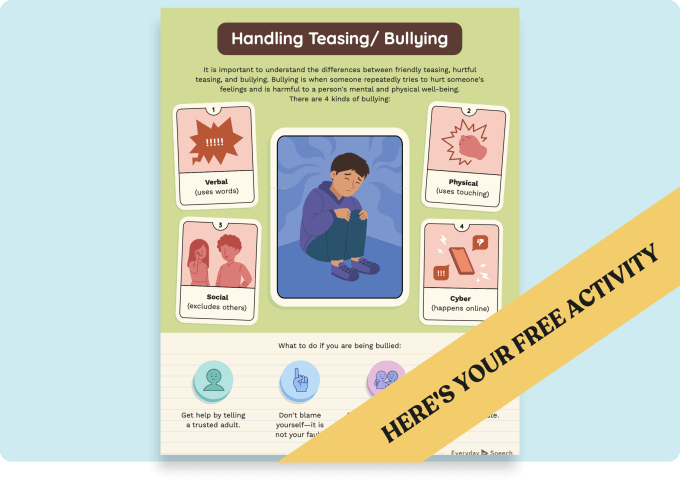Fork in the Road: An Interactive Conversation Skills Game for Elementary Students
Get free social skills materials
No-prep lessons on self-regulation, emotional recognition, conversation skills, and more.
Sign up hereIntroduction
As educators, we are always looking for engaging ways to teach our students valuable social skills. One essential skill is the ability to navigate conversations effectively. Introducing Fork in the Road, a creative game that helps elementary students understand the impact of their conversational choices. By observing different scenarios, students learn how to choose the path that leads to positive outcomes and successful conversations.
No-Prep Activity
In this no-prep activity, students will watch a series of social scenarios involving characters at a “fork in the road” in their conversations. At each critical point, the students will pause the video and discuss the potential outcomes of two different behavioral choices. After considering the consequences, they will select the best path and observe the resulting interaction. This activity helps students analyze and understand the importance of conversation skills, such as not taking things too literally, avoiding abrupt topic shifts, and providing sufficient information for listeners.
Discussion Questions
- Why is it essential to consider other people’s feelings when making conversational choices?
- How can taking things too literally create confusion or misunderstandings? Can you think of a time when this happened to you or someone you know?
- What are some strategies for ensuring that you provide enough information for your listeners to understand your story or message?
- How can abrupt topic shifts negatively affect a conversation, and how can we avoid them?
- How does practicing conversation skills contribute to building stronger relationships with others?
Related Skills
Besides conversation skills, there are many other essential social-emotional learning skills that students can benefit from developing. These include:
- Active Listening: Paying attention, making eye contact, and providing feedback while someone is speaking.
- Empathy: Understanding and sharing the feelings of others, which helps to build strong connections.
- Conflict Resolution: Learning to address disagreements and find solutions that work for everyone involved.
- Cooperation: Working together with others towards a common goal, sharing responsibilities, and supporting each other.
- Respect: Treating others with kindness and understanding, regardless of their differences or opinions.
Next Steps
If you’re interested in implementing Fork in the Road in your classroom and exploring other valuable social-emotional learning resources, sign up for free sample materials at Everyday Speech. By incorporating these principles into your teaching, you’ll be helping your students develop critical social skills that will serve them well throughout their lives.

